A Comprehensive Guide
Indonesia is a country that is rich in natural resources and has a diverse economy. It is one of the largest countries in Southeast Asia and has a population of over 270 million people. Indonesia is also a major player in the global market, with a GDP of over $1 trillion. Many companies are interested in sourcing products from Indonesia due to its low labor costs, abundant raw materials, and strategic location.
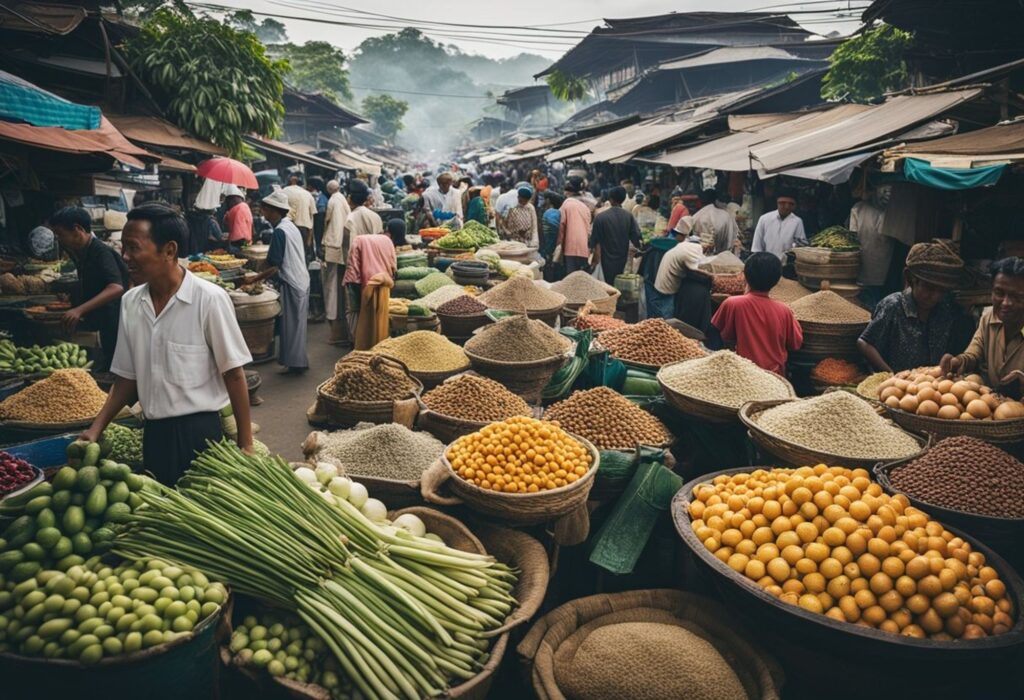
However, sourcing products from Indonesia can be challenging, especially for companies that are new to the market. There are several factors that need to be considered, such as identifying product opportunities, selecting reliable suppliers, navigating logistics and shipping, quality control and compliance, cultural nuances in business negotiations, risk management and mitigation, and building long-term partnerships. To help companies navigate the complex process of sourcing products from Indonesia, we have created the ultimate checklist. This checklist provides a step-by-step guide to sourcing products from Indonesia and covers all the essential aspects of the process.
Key Takeaways
- Sourcing products from Indonesia can be challenging but rewarding due to its low labor costs, abundant raw materials, and strategic location.
- To successfully source products from Indonesia, companies need to consider several factors, such as identifying product opportunities, selecting reliable suppliers, navigating logistics and shipping, quality control and compliance, cultural nuances in business negotiations, risk management and mitigation, and building long-term partnerships.
- The ultimate checklist for sourcing products in Indonesia provides a step-by-step guide to help companies navigate the complex process of sourcing products from Indonesia.
Understanding the Indonesian Market
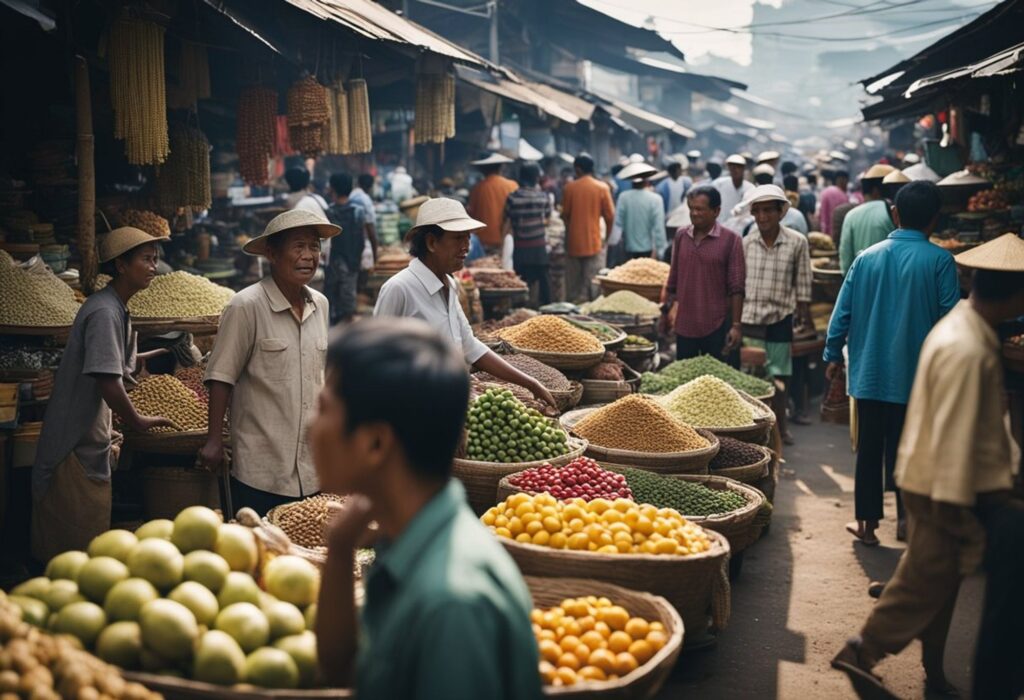
Indonesia is the world’s fourth most populous country with a population of over 270 million people. The country is rich in natural resources and has a diverse economy, making it an attractive destination for sourcing products. However, before sourcing products from Indonesia, it is important to understand the cultural considerations, economic landscape, and legal framework of the country.
Cultural Considerations
Indonesia is a diverse country with over 300 ethnic groups and more than 700 languages spoken. The country’s culture is heavily influenced by its history as a trading hub, with strong influences from India, China, and the Middle East. It is important to understand the cultural nuances when doing business in Indonesia, such as the importance of building relationships and showing respect to elders.
Economic Landscape
Indonesia has a mixed economy with both private and state-owned enterprises. The country’s economy is largely driven by exports, with key industries including textiles, electronics, and automotive. The government has been working to improve the country’s infrastructure and business environment to attract more foreign investment.
Legal Framework
Indonesia has a complex legal system that is based on a civil law system influenced by Dutch and Islamic law. It is important to understand the legal framework when doing business in Indonesia, including the regulations around importing and exporting goods. The government has been working to improve the country’s legal system to make it more transparent and efficient.
In summary, understanding the cultural considerations, economic landscape, and legal framework is crucial when sourcing products from Indonesia. By being aware of these factors, businesses can navigate the Indonesian market with confidence and build successful partnerships with local suppliers.
Identifying Product Opportunities
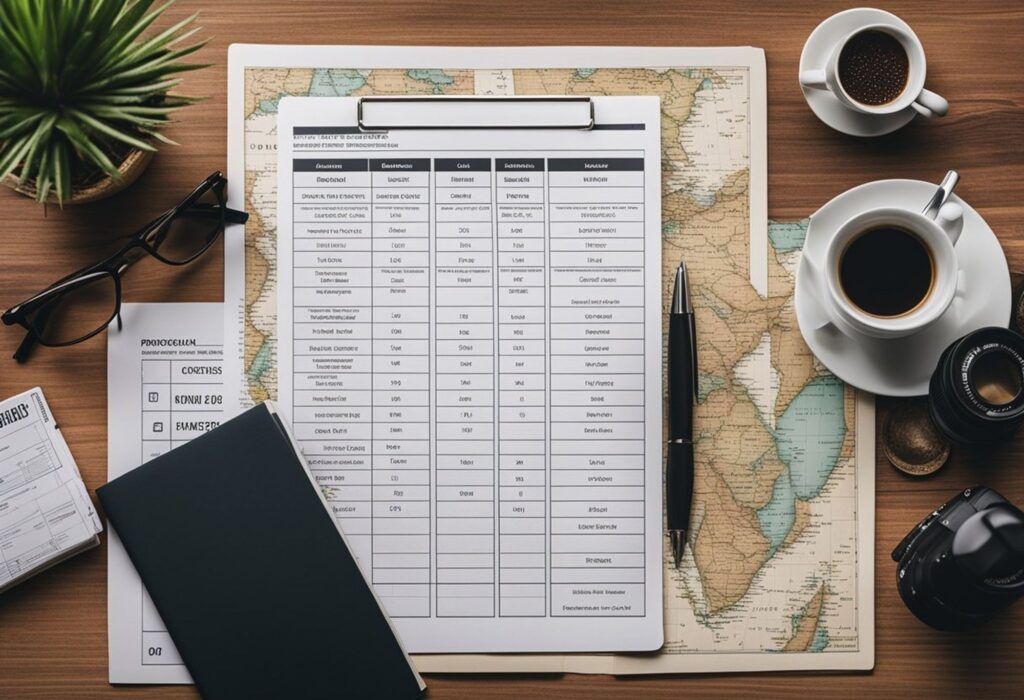
When it comes to sourcing products from Indonesia, identifying the right product opportunities is crucial to success. This section will cover the key steps involved in identifying product opportunities in Indonesia.
Market Research
Market research is an essential step in identifying product opportunities in Indonesia. It involves gathering and analyzing information about the market, including consumer preferences, trends, and demand. Conducting market research can help businesses identify gaps in the market and find opportunities to introduce new products.
Trending Products
Another way to identify product opportunities in Indonesia is to look at trending products. Indonesia has a diverse manufacturing sector, and there are many products that are in high demand both domestically and internationally. By identifying trending products, businesses can capitalize on existing demand and potentially gain a competitive advantage.
Competitive Analysis
Competitive analysis is another important step in identifying product opportunities in Indonesia. By analyzing the competition, businesses can identify gaps in the market and find opportunities to differentiate themselves from their competitors. This can involve looking at factors such as pricing, product features, and distribution channels.
In conclusion, identifying product opportunities in Indonesia requires a combination of market research, analysis of trending products, and competitive analysis. By following these steps, businesses can identify the right products to source and potentially gain a competitive advantage in the market.
Selecting Reliable Suppliers
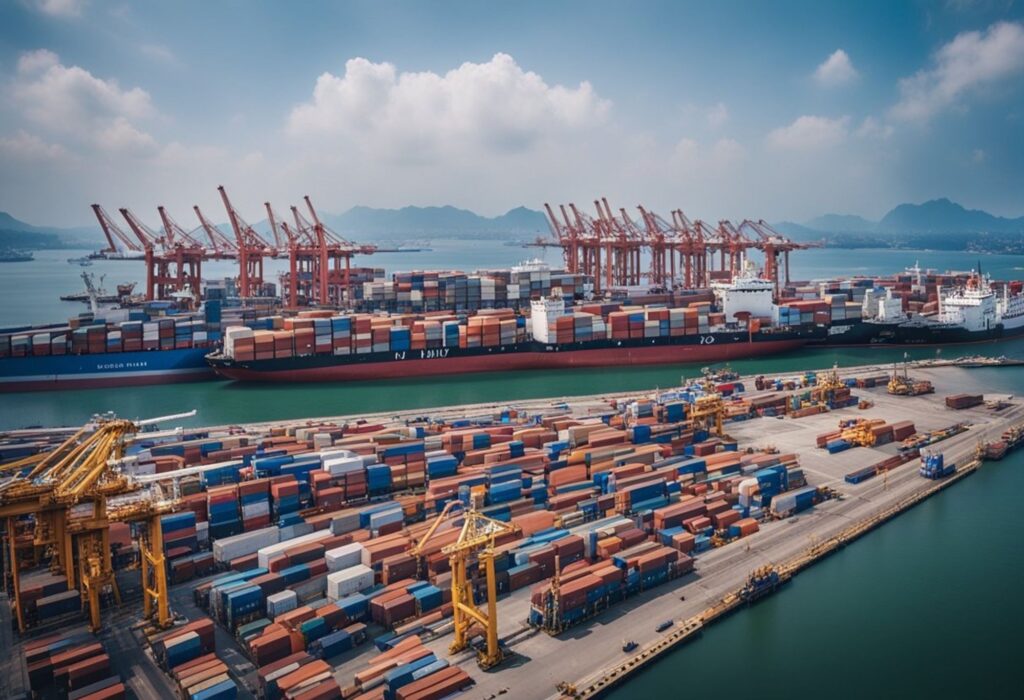
When sourcing products from Indonesia, selecting reliable suppliers is crucial to ensure the quality of the products and the smooth operation of the supply chain. Here are some key factors to consider when selecting suppliers in Indonesia.
Supplier Vetting Process
Before selecting a supplier, it is important to conduct a thorough vetting process to ensure that the supplier is reliable and trustworthy. This process can involve checking the supplier’s business license, conducting background checks, and visiting the supplier’s facilities to assess their production capabilities and quality control processes.
Quality Assurance
Quality assurance is another important aspect to consider when selecting suppliers in Indonesia. It is important to ensure that the supplier has a robust quality control system in place to ensure that the products meet the required standards and specifications. This can involve conducting product inspections and testing to verify the quality of the products.
Payment Terms Negotiation
Negotiating payment terms with suppliers is also an important aspect of selecting reliable suppliers in Indonesia. It is important to negotiate payment terms that are favorable to both parties and ensure that the supplier is paid on time. This can involve negotiating payment schedules, payment methods, and payment terms such as discounts for early payment.
By following these key factors, businesses can select reliable suppliers in Indonesia and ensure the quality of their products and the smooth operation of their supply chain.
Navigating Logistics and Shipping

When sourcing products in Indonesia, navigating logistics and shipping is a crucial aspect to consider. It is important to understand the export regulations, shipping options, and customs clearance procedures to ensure a smooth and cost-effective process.
Export Regulations
Export regulations in Indonesia are governed by the Ministry of Trade. The regulations cover various aspects such as licensing, documentation, and compliance with international trade laws. It is important to ensure that all necessary licenses and permits are obtained before exporting products from Indonesia. Failure to comply with the regulations can result in fines and delays in the shipping process.
Shipping Options
There are several shipping options available when sourcing products from Indonesia. Air freight is the fastest option and is ideal for high-value or time-sensitive products. Sea freight is a more cost-effective option and is suitable for large shipments. Road and rail freight are also available for domestic shipping within Indonesia.
When choosing a shipping option, it is important to consider the transit time, cost, and reliability of the carrier. Working with a reputable freight forwarder can help ensure that the shipping process is smooth and efficient.
Customs Clearance
Customs clearance is a necessary procedure when importing products into the destination country. In Indonesia, customs clearance is handled by the Directorate General of Customs and Excise. The process involves submitting the necessary documentation and paying any applicable duties and taxes.
To ensure a smooth customs clearance process, it is important to ensure that all necessary documentation is in order and that the products comply with the destination country’s regulations. Working with a customs broker can help simplify the process and reduce the risk of delays or fines.
In conclusion, navigating logistics and shipping when sourcing products in Indonesia requires a thorough understanding of the export regulations, shipping options, and customs clearance procedures. By working with experienced freight forwarders and customs brokers, businesses can ensure a smooth and cost-effective shipping process.
Quality Control and Compliance
When sourcing products from Indonesia, it is important to ensure that they meet the required quality standards and comply with relevant regulations. This section covers the key aspects of quality control and compliance that should be considered when sourcing products from Indonesia.
Product Standards
Indonesia has a range of product standards that apply to different industries and products. These standards are set by the relevant government agencies and are designed to ensure that products are safe, reliable, and of good quality. When sourcing products from Indonesia, it is important to be aware of the relevant product standards and to ensure that the products meet these standards.
Compliance Certification
In addition to product standards, there are also various compliance certifications that may be required when sourcing products from Indonesia. These certifications are issued by independent third-party organizations and are designed to ensure that products meet certain quality and safety standards. Some of the common compliance certifications that may be required when sourcing products from Indonesia include ISO 9001, ISO 14001, and OHSAS 18001.
Inspection Procedures
To ensure that products meet the required quality standards and comply with relevant regulations, it is important to carry out inspections throughout the production process. These inspections may include pre-production inspections, in-process inspections, and final inspections. The inspections should be carried out by qualified and experienced inspectors who are familiar with the relevant product standards and compliance certifications.
Overall, quality control and compliance are essential aspects of sourcing products from Indonesia. By ensuring that products meet the required quality standards and comply with relevant regulations, importers can minimize the risk of product defects, safety issues, and legal problems.
Cultural Nuances in Business Negotiations
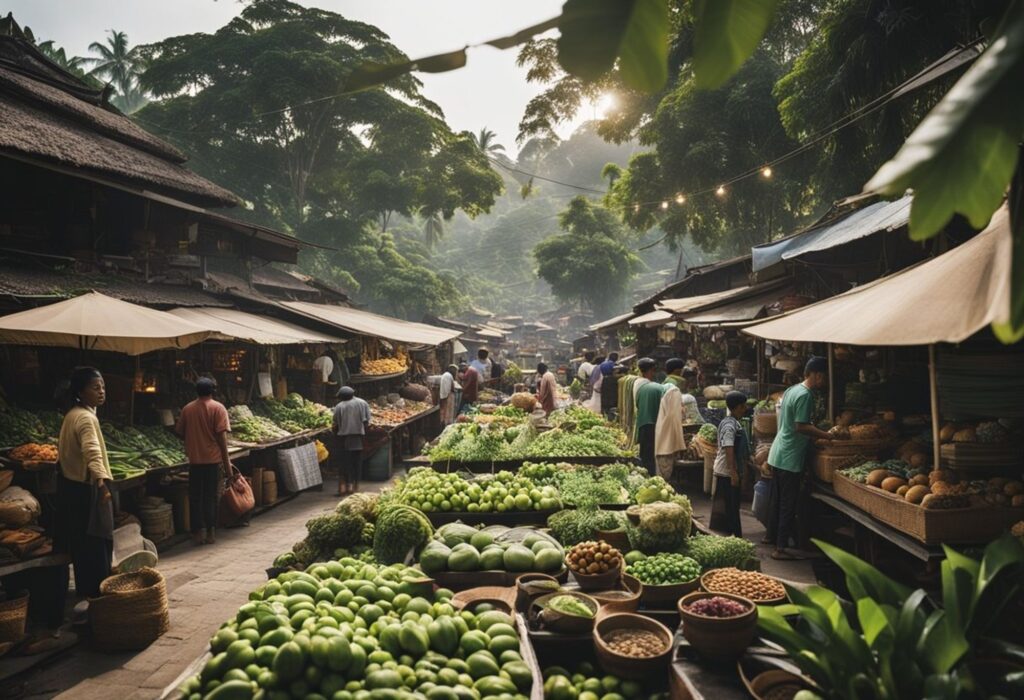
When sourcing products in Indonesia, it is important to understand the cultural nuances that can impact business negotiations. Building relationships and trust is crucial in Indonesian culture, and business negotiations are often seen as an opportunity to establish and strengthen these relationships.
One important aspect to keep in mind is the hierarchical structure of Indonesian society. Respect for elders and those in positions of authority is highly valued, and it is important to show deference to those in higher positions during negotiations. This can include using formal titles and addressing individuals by their last name.
Another cultural nuance to consider is communication style. Indonesians tend to be indirect in their communication, and may avoid saying “no” directly in order to avoid causing offense. It is important to pay attention to nonverbal cues and read between the lines in order to understand the true meaning behind what is being said.
Time management is also viewed differently in Indonesia. While punctuality is still important, it is not uncommon for meetings to start later than scheduled. This is because Indonesians prioritize building relationships and may spend time socializing before getting down to business.
Overall, understanding and respecting these cultural nuances can help build trust and establish successful business relationships when sourcing products in Indonesia.
Cultural Nuances in Business Negotiations in Indonesia
- Building relationships and trust is crucial
- Respect for hierarchy is highly valued
- Indonesians tend to be indirect in their communication
- Time management is viewed differently
- Understanding and respecting these nuances is key to successful business relationships
Risk Management and Mitigation
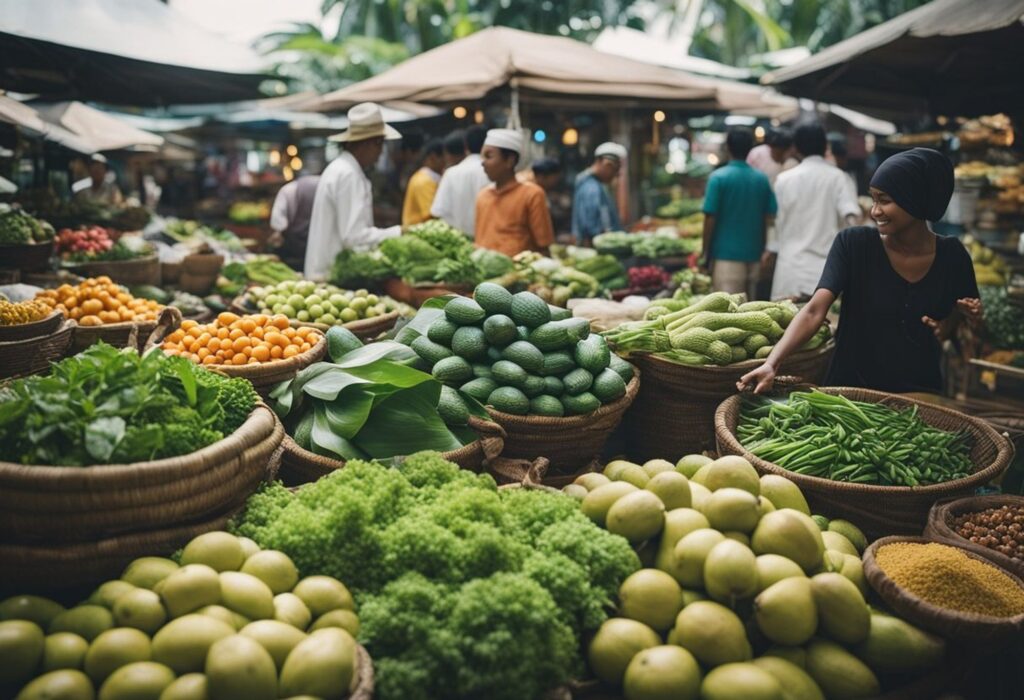
When sourcing products from Indonesia, it is important to consider the potential risks that may arise during the procurement process. By identifying and mitigating these risks, businesses can safeguard their supply chains and ensure a successful sourcing experience.
Political Risks
Indonesia is a politically stable country, but businesses should still be aware of any potential political risks that may arise. For example, changes in government policies or regulations could impact the import/export of goods, leading to supply chain disruptions. To mitigate these risks, businesses should stay informed about any political developments in Indonesia and have contingency plans in place.
Currency Fluctuations
Currency fluctuations can have a significant impact on the cost of goods when sourcing products from Indonesia. To mitigate this risk, businesses can consider hedging strategies such as forward contracts or currency options. It is also important to have a clear understanding of the exchange rate and any potential fees or charges associated with currency conversion.
Supply Chain Disruptions
Supply chain disruptions can occur due to a variety of factors such as natural disasters, transportation issues, or labor disputes. To mitigate these risks, businesses should have a clear understanding of their supply chain and identify any potential vulnerabilities. This may involve diversifying suppliers, implementing contingency plans, or investing in supply chain technology.
Overall, by proactively identifying and mitigating potential risks, businesses can ensure a successful sourcing experience when procuring products from Indonesia.
Building Long-Term Partnerships
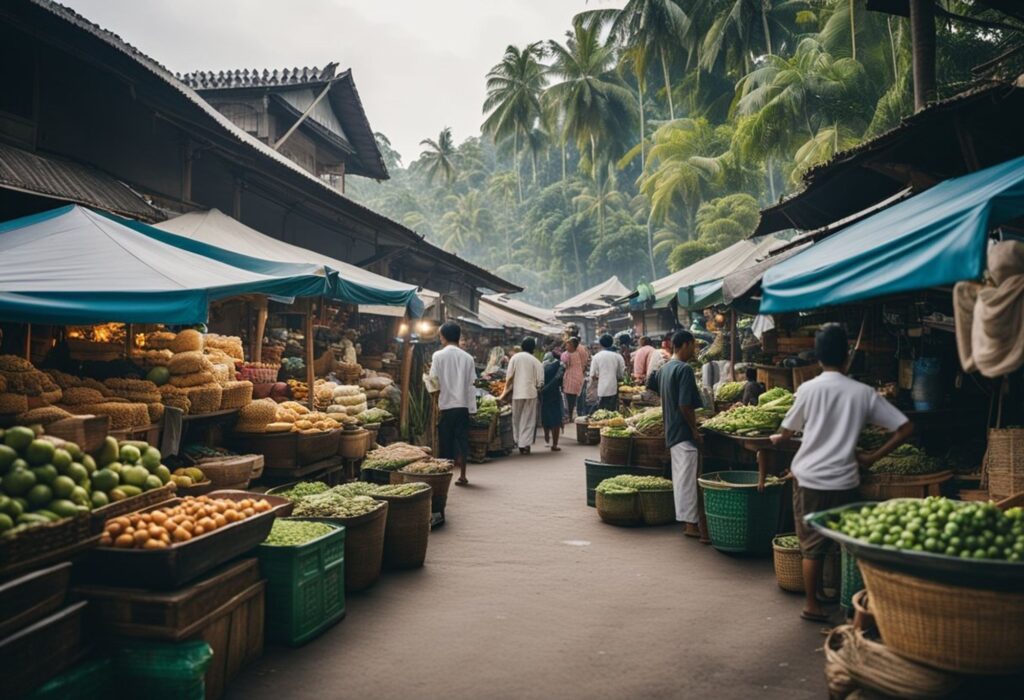
Building long-term partnerships with suppliers in Indonesia is crucial for any business that wants to ensure a consistent supply of high-quality products. The following checklist outlines some key factors to consider when building long-term partnerships with suppliers in Indonesia:
1. Shared Vision and Values
The first step to building a long-term strategic partnership with your supplier is to ensure that you share a common vision, mission, and values [1]. This means that you need to understand the supplier’s goals and objectives, and ensure that they align with your own. This shared vision and values will help to establish a strong foundation for a long-term partnership, built on mutual trust and respect.
2. Open Communication
Effective communication is essential for building and maintaining long-term partnerships with suppliers in Indonesia. This means that you need to establish clear lines of communication, and ensure that both parties are able to communicate openly and honestly [1]. Regular communication can help to identify potential issues early on, and ensure that they are addressed before they become major problems.
3. Quality Control
Quality control is another important factor to consider when building long-term partnerships with suppliers in Indonesia. This means that you need to establish clear quality standards, and ensure that your suppliers are able to meet these standards consistently [2]. Regular quality checks can help to identify any issues early on, and ensure that they are addressed quickly and effectively.
4. Mutual Benefit
A successful long-term partnership is one that benefits both parties [1]. This means that you need to ensure that your suppliers are able to benefit from the partnership as well. For example, you could offer your suppliers longer payment terms or bulk orders in exchange for better pricing or faster delivery times.
By following these key factors, businesses can build strong and long-lasting partnerships with suppliers in Indonesia, ensuring a consistent supply of high-quality products.
[1] Source: LinkedIn
[2] Source: The Ultimate B2B Private Label Sourcing Checklist and Guide
Frequently Asked Questions
What are the key steps in conducting due diligence for Indonesian suppliers?
When sourcing products from Indonesia, it is important to conduct due diligence on potential suppliers to ensure they are reliable and trustworthy. Key steps in conducting due diligence include verifying their business registration and licenses, checking their financial stability, and reviewing their reputation and track record in the industry. It is also recommended to visit the supplier’s facilities in person to assess their operations and quality control processes.
How can one navigate and utilize the B2B Indonesia Business Directory effectively for product sourcing?
The B2B Indonesia Business Directory is a useful tool for finding potential suppliers in Indonesia. To navigate and utilize it effectively, one should use specific keywords related to the desired product or industry. It is also important to filter search results by location, company size, and other relevant criteria. Contacting multiple suppliers and requesting samples and quotes can help in selecting the best supplier for your needs.
Which industries in Indonesia offer the best opportunities for foreign businesses seeking to source products?
Indonesia offers opportunities for sourcing products in various industries such as textiles, furniture, electronics, and food and beverage. The country is also a major producer of natural resources such as coal, palm oil, and rubber. Foreign businesses should consider the potential demand for their products in the Indonesian market and research the competitive landscape before entering any industry.
What are the top considerations when choosing a clothing factory in Indonesia?
When sourcing clothing products from Indonesia, it is important to consider factors such as the factory’s production capacity, lead times, and quality control processes. It is also recommended to check the factory’s compliance with labor and environmental regulations, as well as their experience and expertise in the specific type of clothing product being sourced.
How does one ensure quality and compliance when sourcing from Indonesian manufacturers?
To ensure quality and compliance when sourcing from Indonesian manufacturers, one should conduct thorough due diligence on potential suppliers and request samples and certifications. It is also recommended to establish clear quality control standards and protocols with the supplier, and to conduct regular inspections and audits of their facilities and processes.
What cultural factors should be taken into account when negotiating with Indonesian suppliers?
When negotiating with Indonesian suppliers, it is important to be respectful and considerate of cultural differences. Indonesians value relationships and personal connections, so building a rapport with the supplier can be beneficial. It is also important to avoid confrontational or aggressive negotiation tactics, and to be patient and flexible in the negotiation process.
Unlock the Ultimate Checklist for Sourcing Products in Indonesia with Buyamia!
Streamline your sourcing process and ensure success with our comprehensive checklist. From identifying reliable suppliers to understanding local regulations, we’ve got you covered. Click here to access Buyamia’s ultimate checklist and elevate your sourcing strategy today!

Leave a Reply